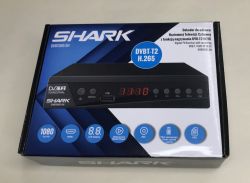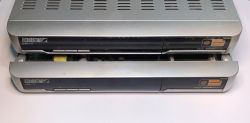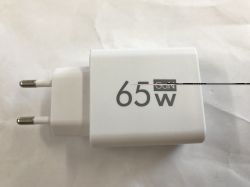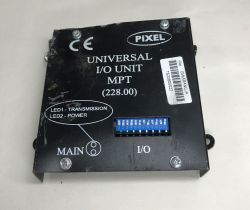boozeman wrote:
Successfull write for OpenBK7231T-20220203fx-956kb\OpenBK7231T_App_UA_1.0.0.bin
Good job, can you tell us how did you solve the flash write problem? New UART converter helped or something else?
boozeman wrote:
Well, I can't see any wifi network to connect with my phone. I will continue to debug
No WiFi, even after restarting module several times?
boozeman wrote:
Do you have Kicad Symbols for WB2S and WB3S already?
I am using Eagle and I draw WB2S by hand, but in a hindsight, it would certainly make sense to create Eagle library for it.
boozeman wrote:
I can try to reverse schematic for Nedis device. Not the high voltage section but normal what pin goes where BL0937 etc.
If you want, of course it might be helpful.
Great news - I got next Beken chip module. That one supposedly supports Bluetooth as well. I will try flashing it soon:
![[BK7231T] My HTTP server, configurator, MQTT support from Home Assistant [BK7231T] My HTTP server, configurator, MQTT support from Home Assistant](https://obrazki.elektroda.pl/8446952500_1643992242_thumb.jpg)








![[BK7231T] My HTTP server, configurator, MQTT support from Home Assistant [BK7231T] My HTTP server, configurator, MQTT support from Home Assistant](https://obrazki.elektroda.pl/8084436600_1644024661_thumb.jpg)
![[BK7231T] My HTTP server, configurator, MQTT support from Home Assistant [BK7231T] My HTTP server, configurator, MQTT support from Home Assistant](https://obrazki.elektroda.pl/9255751000_1644024669_thumb.jpg)
![[BK7231T] My HTTP server, configurator, MQTT support from Home Assistant [BK7231T] My HTTP server, configurator, MQTT support from Home Assistant](https://obrazki.elektroda.pl/7367424500_1644024669_thumb.jpg)
![[BK7231T] My HTTP server, configurator, MQTT support from Home Assistant [BK7231T] My HTTP server, configurator, MQTT support from Home Assistant](https://obrazki.elektroda.pl/7811117100_1644024669_thumb.jpg)
![[BK7231T] My HTTP server, configurator, MQTT support from Home Assistant [BK7231T] My HTTP server, configurator, MQTT support from Home Assistant](https://obrazki.elektroda.pl/2222797400_1644024690_thumb.jpg)
![[BK7231T] My HTTP server, configurator, MQTT support from Home Assistant [BK7231T] My HTTP server, configurator, MQTT support from Home Assistant](https://obrazki.elektroda.pl/5061764900_1644024689_thumb.jpg)
![[BK7231T] My HTTP server, configurator, MQTT support from Home Assistant [BK7231T] My HTTP server, configurator, MQTT support from Home Assistant](https://obrazki.elektroda.pl/4241148000_1644036507_thumb.jpg)
![[BK7231T] My HTTP server, configurator, MQTT support from Home Assistant [BK7231T] My HTTP server, configurator, MQTT support from Home Assistant](https://obrazki.elektroda.pl/2366903300_1644036589_thumb.jpg)
![[BK7231T] My HTTP server, configurator, MQTT support from Home Assistant [BK7231T] My HTTP server, configurator, MQTT support from Home Assistant](https://obrazki.elektroda.pl/2005663700_1644091048_thumb.jpg)
![[BK7231T] My HTTP server, configurator, MQTT support from Home Assistant [BK7231T] My HTTP server, configurator, MQTT support from Home Assistant](https://obrazki.elektroda.pl/9377014500_1644091048_thumb.jpg)
![[BK7231T] My HTTP server, configurator, MQTT support from Home Assistant [BK7231T] My HTTP server, configurator, MQTT support from Home Assistant](https://obrazki.elektroda.pl/8949867300_1644091049_thumb.jpg)
![[BK7231T] My HTTP server, configurator, MQTT support from Home Assistant [BK7231T] My HTTP server, configurator, MQTT support from Home Assistant](https://obrazki.elektroda.pl/3946760900_1644091056_thumb.jpg)
![[BK7231T] My HTTP server, configurator, MQTT support from Home Assistant [BK7231T] My HTTP server, configurator, MQTT support from Home Assistant](https://obrazki.elektroda.pl/8242495600_1644102165_thumb.jpg)
![[BK7231T] My HTTP server, configurator, MQTT support from Home Assistant [BK7231T] My HTTP server, configurator, MQTT support from Home Assistant](https://obrazki.elektroda.pl/9938613900_1644102165_thumb.jpg)
![[BK7231T] My HTTP server, configurator, MQTT support from Home Assistant [BK7231T] My HTTP server, configurator, MQTT support from Home Assistant](https://obrazki.elektroda.pl/8032266100_1644102165_thumb.jpg)
![[BK7231T] My HTTP server, configurator, MQTT support from Home Assistant [BK7231T] My HTTP server, configurator, MQTT support from Home Assistant](https://obrazki.elektroda.pl/4081438300_1644154102_thumb.jpg)
![[BK7231T] My HTTP server, configurator, MQTT support from Home Assistant [BK7231T] My HTTP server, configurator, MQTT support from Home Assistant](https://obrazki.elektroda.pl/3881690000_1644154102_thumb.jpg)
![[BK7231T] My HTTP server, configurator, MQTT support from Home Assistant [BK7231T] My HTTP server, configurator, MQTT support from Home Assistant](https://obrazki.elektroda.pl/1348940700_1644154102_thumb.jpg)
![[BK7231T] My HTTP server, configurator, MQTT support from Home Assistant [BK7231T] My HTTP server, configurator, MQTT support from Home Assistant](https://obrazki.elektroda.pl/3499816500_1644156433_thumb.jpg)
![[BK7231T] My HTTP server, configurator, MQTT support from Home Assistant [BK7231T] My HTTP server, configurator, MQTT support from Home Assistant](https://obrazki.elektroda.pl/7584166600_1644156432_thumb.jpg)
![[BK7231T] My HTTP server, configurator, MQTT support from Home Assistant [BK7231T] My HTTP server, configurator, MQTT support from Home Assistant](https://obrazki.elektroda.pl/3426779700_1644156432_thumb.jpg)
![[BK7231T] My HTTP server, configurator, MQTT support from Home Assistant [BK7231T] My HTTP server, configurator, MQTT support from Home Assistant](https://obrazki.elektroda.pl/6017490200_1644156436_thumb.jpg)
![[BK7231T] My HTTP server, configurator, MQTT support from Home Assistant [BK7231T] My HTTP server, configurator, MQTT support from Home Assistant](https://obrazki.elektroda.pl/3020726900_1644156436_thumb.jpg)
![[BK7231T] My HTTP server, configurator, MQTT support from Home Assistant [BK7231T] My HTTP server, configurator, MQTT support from Home Assistant](https://obrazki.elektroda.pl/2114413500_1644162876_thumb.jpg)
![[BK7231T] My HTTP server, configurator, MQTT support from Home Assistant [BK7231T] My HTTP server, configurator, MQTT support from Home Assistant](https://obrazki.elektroda.pl/2659488100_1644162885_thumb.jpg)
![[BK7231T] My HTTP server, configurator, MQTT support from Home Assistant [BK7231T] My HTTP server, configurator, MQTT support from Home Assistant](https://obrazki.elektroda.pl/4627847400_1644162899_thumb.jpg)
![[BK7231T] My HTTP server, configurator, MQTT support from Home Assistant [BK7231T] My HTTP server, configurator, MQTT support from Home Assistant](https://obrazki.elektroda.pl/7984950700_1644162906_thumb.jpg)
![[BK7231T] My HTTP server, configurator, MQTT support from Home Assistant [BK7231T] My HTTP server, configurator, MQTT support from Home Assistant](https://obrazki.elektroda.pl/8982634000_1644162928_thumb.jpg)
![[BK7231T] My HTTP server, configurator, MQTT support from Home Assistant [BK7231T] My HTTP server, configurator, MQTT support from Home Assistant](https://obrazki.elektroda.pl/4211568600_1644174676_thumb.jpg)
![[BK7231T] My HTTP server, configurator, MQTT support from Home Assistant [BK7231T] My HTTP server, configurator, MQTT support from Home Assistant](https://obrazki.elektroda.pl/4640889600_1644340311_thumb.jpg)
![[BK7231T] My HTTP server, configurator, MQTT support from Home Assistant [BK7231T] My HTTP server, configurator, MQTT support from Home Assistant](https://obrazki.elektroda.pl/1442368200_1644340314_thumb.jpg)
![[BK7231T] My HTTP server, configurator, MQTT support from Home Assistant [BK7231T] My HTTP server, configurator, MQTT support from Home Assistant](https://obrazki.elektroda.pl/2377250300_1644340316_thumb.jpg)
![[BK7231T] My HTTP server, configurator, MQTT support from Home Assistant [BK7231T] My HTTP server, configurator, MQTT support from Home Assistant](https://obrazki.elektroda.pl/9507421400_1644397312_thumb.jpg)
![[BK7231T] My HTTP server, configurator, MQTT support from Home Assistant [BK7231T] My HTTP server, configurator, MQTT support from Home Assistant](https://obrazki.elektroda.pl/4300347700_1644397409_thumb.jpg)